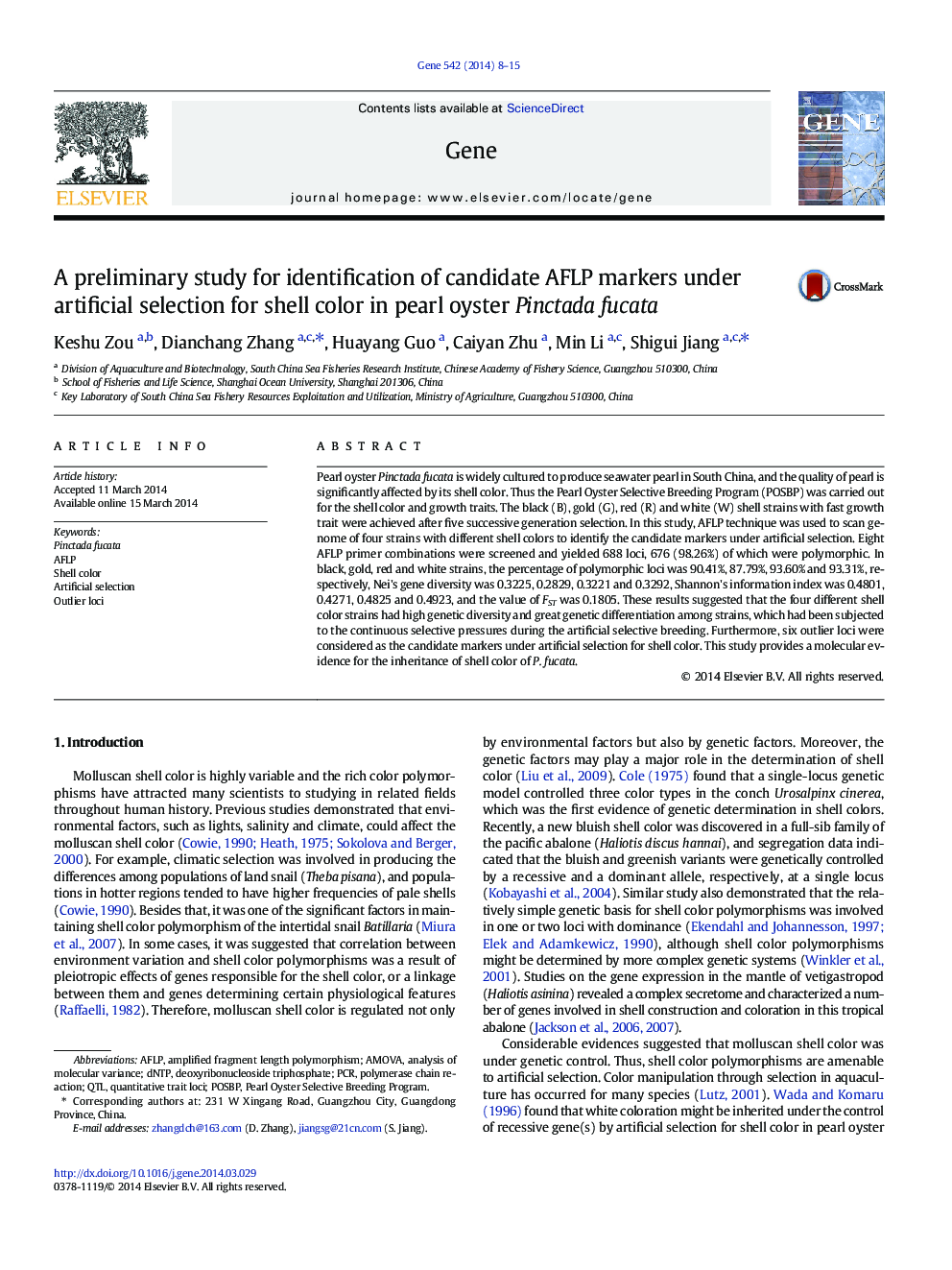| Article ID | Journal | Published Year | Pages | File Type |
|---|---|---|---|---|
| 2816426 | Gene | 2014 | 8 Pages |
•AFLP was optimized for Pinctada fucata in selective breeding of shell colors.•Genetic diversity within strain was high.•Gold shell strain had the lowest genetic diversity (h = 0.2829 and I = 0.4271).•Great genetic differentiation (FST = 0.1805) among strains•Six outlier loci were detected as the candidate markers under artificial selection.
Pearl oyster Pinctada fucata is widely cultured to produce seawater pearl in South China, and the quality of pearl is significantly affected by its shell color. Thus the Pearl Oyster Selective Breeding Program (POSBP) was carried out for the shell color and growth traits. The black (B), gold (G), red (R) and white (W) shell strains with fast growth trait were achieved after five successive generation selection. In this study, AFLP technique was used to scan genome of four strains with different shell colors to identify the candidate markers under artificial selection. Eight AFLP primer combinations were screened and yielded 688 loci, 676 (98.26%) of which were polymorphic. In black, gold, red and white strains, the percentage of polymorphic loci was 90.41%, 87.79%, 93.60% and 93.31%, respectively, Nei's gene diversity was 0.3225, 0.2829, 0.3221 and 0.3292, Shannon's information index was 0.4801, 0.4271, 0.4825 and 0.4923, and the value of FST was 0.1805. These results suggested that the four different shell color strains had high genetic diversity and great genetic differentiation among strains, which had been subjected to the continuous selective pressures during the artificial selective breeding. Furthermore, six outlier loci were considered as the candidate markers under artificial selection for shell color. This study provides a molecular evidence for the inheritance of shell color of P. fucata.
Graphical abstractFigure optionsDownload full-size imageDownload high-quality image (96 K)Download as PowerPoint slide
